The Alpha and the Omega and the Great Mandate
These times are unprecedented. Churches are closed in Australia and many other countries. Our priests are unable to minister the sacraments in public. There is massive pressure on us all, fuelled by the devil’s favourite tool, fear, to force us to take experimental injections which have been branded by governments and media world-wide as our saviour and ticket to freedom. I don’t judge those who have received the vaccines for whatever personal reason. I pray that they had full informed consent and no coercion in making their decision. Likewise, I don’t judge those who have decided to stay away from them for moral reasons or who are hesitant out of concerns regarding safety and efficacy. We are all created in the image and likeness of God.
The headlines constantly blare at us the news that this year’s dominant COVID strain is the Delta variant. They remind us daily just how highly contagious it is. They repeat to us the government’s mandate to vaccinate in order to regain our previous rights and freedoms: “Take the jab to get your health passport and we will let you have your freedom” is the government’s catch-cry. Governments are telling us that if we haven’t taken the jab, we won’t be able to attend places of worship, pubs, restaurants, movie theatres, shopping centres and the like, and that we won’t be able to work. Furthermore, whether one can see it now or not, the segregation of society has already begun. Those without the jab are branded as contagious, modern day lepers. But we need to ask ourselves deeper questions -what are the unvaccinated actually spreading if they are healthy, and why do they have to be separated from everyone? What am I, as a Christian, spreading? What is the fruit of what I am spreading? Am I really free if I decide to comply with these mandates? What makes one free?
Let me pause for a moment and briefly add to my previous post on Fear or Faith. Harking back to the days of my childhood, I smile as I remember how times were good in Australia. As the eldest of five children, I remember playing with my siblings in a carefree world and praying each day as a family. We misbehaved at times, but we were essentially free to go and do as we please. Sure, we had our ups and downs, as all siblings do, but overall life was great. It was a time when religious movies were played on mainstream television (how times have changed!) and the movie “King of Kings” was broadcast on Good Friday, Easter Sunday and sometimes even on Christmas Day. I remember us, as a family, watching the life of Christ as portrayed in that classic 1961 film starring Jeffrey Hunter as Jesus. I am particularly reminiscent of a scene in the movie when Jesus comes to visit John the Baptist in prison. Even though this meeting isn’t recorded in the Gospels, the conversation between Jesus and the prison guard, Lucius, has always resonated with me, even back then when I first saw the movie as a little boy. The words exchanged are as follows:
Lucius : [Jesus is trying to visit John the Baptist in prison] The prisoner John is not allowed visitors. If You wish to send him a message, leave it with the guard.
Jesus : I would see John.
Lucius : Why?
Jesus : I come to free John.
Lucius : [sarcastically] And just how do You propose to break him free from his cell?
Jesus : I come to free him within his cell.
Lucius : Freedom? Behind stone walls?
Jesus : You are free to come and go as you please, and yet you are still a prisoner because you place no faith in anything but your sword.
“I come to free him within his cell”. I remember going through the Gospels as a 10 year old trying to find these words but being unsuccessful. Irrespective of that, the words made a deep impression on me. They hold a wealth of meaning and I believe they resemble the spirit of the Gospel message of Christ. Those words which impacted me from long ago have finally made sense today, in this present situation. How can a person be free in the four walls of a prison cell? How can a person have freedom, when the four walls of pressure – mainstream media, governments, society at large, and the devil – are severing your freedoms and the ability to choose how to live your life?
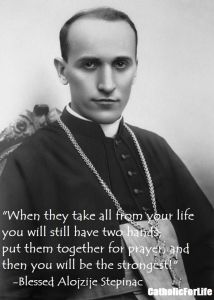 Pondering on our current situation, one can’t help but draw parallels to the trials our Croatian forefathers experienced under the oppressive rule of communism. Our Blessed Cardinal Stepinac was placed under house arrest, effectively stripping him from the ability to act freely in performing his religious function as a Cardinal. He was offered freedom in exchange for complying to the mandates of men. All he had to do was to break the Croatian Catholic Church away from its union with Rome and he would be a free man. The communists even promised to allow him to be the face and head of this new break-away church. This was the man-made mandate the communists insisted on in order for Blessed Stepinac to have freedom. But Blessed Stepinac refused their mandates and instead chose to be free within his cell, first serving a term in prison, and then under house arrest. Yet the Cardinal cemented himself as a voice of hope and a witness to the Gospel of Jesus Christ for the people of Croatia, as well as remaining a faithful son of the Catholic Church.
Pondering on our current situation, one can’t help but draw parallels to the trials our Croatian forefathers experienced under the oppressive rule of communism. Our Blessed Cardinal Stepinac was placed under house arrest, effectively stripping him from the ability to act freely in performing his religious function as a Cardinal. He was offered freedom in exchange for complying to the mandates of men. All he had to do was to break the Croatian Catholic Church away from its union with Rome and he would be a free man. The communists even promised to allow him to be the face and head of this new break-away church. This was the man-made mandate the communists insisted on in order for Blessed Stepinac to have freedom. But Blessed Stepinac refused their mandates and instead chose to be free within his cell, first serving a term in prison, and then under house arrest. Yet the Cardinal cemented himself as a voice of hope and a witness to the Gospel of Jesus Christ for the people of Croatia, as well as remaining a faithful son of the Catholic Church.
In the light of our current situation, we need to ask ourselves how or what makes us free within the cell of lock-down? What makes us free even in the absence of lock-down? We need to look deeper into the narrative of the COVID-19 crisis and the mandating of vaccines and health passports. As Christians, we need to examine our conscience on this issue. Did we succumb to a fear that is foreign to our faith in God, a fear that isn’t worthy of our dignity as children of a loving God? Did we help to re-balance the sentiment of the current climate by offering an alternative witness to the pervading sense of despair and fear in response to the pandemic by displaying hope and witnessing to others with a contagious faith?
Who or what shall we fear then? It is true that sometimes it is easy to get caught in a cycle of fear and worry about financial issues, sickness and disease, social isolation or cancellation, and family relationship issues. I know I have certainly felt the pressure of some of these fears in my life. They are all legitimate reasons to worry, but we can and often do, by the grace of God, overcome and recover from these setbacks and concerns.
Death is a fear common to many. With the numbers of COVID cases re-read repeatedly and daily by every media outlet, and the number of deaths attributed to COVID broadcasted on the evening news, it is no wonder fear is instilled in the majority of listeners as they are now encountering the reality of death for the first time. But for a Christian, death poses no fear and does not draw the final curtain. Jesus tells us of Himself: “This is the bread that comes down from heaven, so that if anyone eat of it, he will not die. I am the living bread that has come down from heaven. If anyone eat of this bread he shall live forever” (John 6:50-51). So, for a Christian, death is not the final tragedy. It is eternal damnation that one should fear more than death of the body (Matthew 10:28) and it is the mission of the Church to proclaim the Good News, this message of hope and salvation in Jesus Christ, who is the Alpha and the Omega (Revelation 22:13).
Unfortunately, we live in a post-Christian, pagan, secular society which replaces messages of hope and faith with government mandates which seek to direct trust in government policies as the only saviours from disease and death (cf Matthew 15:9). Christ teaches us that we should give back to Caesar what belongs to Caesar, and to God, what belongs to God (Mark 12:17). It is the mandates of Christ that we must fulfill, especially the ‘Great Mandate’ – the mandate to go make disciples of all nations, as commissioned in Matthew chapter 28, continuing the work of Christ with signs and wonders (Mark 16:15-18). In these troubled times, how have we carried out this ‘Great Mandate’ of Christ? Has our faith in the Alpha and Omega been a contagious faith, or have we been paralysed with fear? Have we spread the good fruit of hope, encouragement and a building up of the body of Christ?
To understand the great mandate of God, we need to go to the beginning of the Catechism of the Catholic Church, namely, the prologue:
“FATHER, . . . this is eternal life, that they may know You, the only true God, and Jesus Christ whom You have sent.”1 “God our Saviour desires all men to be saved and to come to the knowledge of the truth.”2″There is no other name under heaven given among men by which we must be saved”3 – than the name of JESUS.
It is important to note that God the Father desires all men to be saved and the only way to be saved is through acknowledging the truth, that Jesus Christ died so that we may be saved. The prologue continues, outlining and mandating this call to mission not just for the apostles, but for us all:
2 So that this call should resound throughout the world, Christ sent forth the apostles He had chosen, commissioning them to proclaim the gospel: “Go therefore and make disciples of all nations, baptizing them in the name of the Father and of the Son and of the Holy Spirit, teaching them to observe all that I have commanded you; and lo, I am with you always, to the close of the age.”4 Strengthened by this mission, the apostles “went forth and preached everywhere, while the Lord worked with them and confirmed the message by the signs that attended it.”5
3 Those who with God’s help have welcomed Christ’s call and freely responded to it are urged on by love of Christ to proclaim the Good News everywhere in the world. This treasure, received from the apostles, has been faithfully guarded by their successors. All Christ’s faithful are called to hand it on from generation to generation, by professing the faith, by living it in fraternal sharing, and by celebrating it in liturgy and prayer.6
This great mandate of proclaiming the Good News was not meant to be contained within the four walls of the Church, nor the four walls of a lock-down. Blessed Stepinac was able to spread the Good News of Jesus Christ even though he was under house arrest. It is our call to do the same and to fulfill the great mandate entrusted to us all by Christ and His Church. Using the current COVID catch-phrases as a starting point, let us examine our lives with a Spirit of power, love and a sound mind (2 Timothy 1:7) to see how we have carried out this mandate in our own circles of influence.
MASK WEARING
What are you hiding behind? What is the mask concealing in your life?
We all have masks at times. The mask of sin is the greatest hindrance to showing our love for Jesus and others. Although the COVID virus will not infect everyone, original sin (passed down from our first parents) and our own actual sins have infected one hundred percent of the population. Our sinful nature has masked us and separated us from relationship with God.
Blessed are we that God the Father sent His only Son Jesus into the world to die on the cross to save us from this sin. It is the spilling of his Most Precious Blood that has removed this mask of sinfulness in our lives by the grace of Baptism and given us the power to live as true children of God. Remove the mask of sin in your life by cleansing yourself in the Sacrament of Confession so you can grow in the love of Christ and His saving mission. Take off the mask and start to spread this contagious faith. Be a super spreader. Spread the Alpha and the Omega to all those you meet and infect them with your faith.
SOCIAL DISTANCING
Where are you hiding? Are you in the upper room, hiding from the authorities, as the apostles were after the crucifixion (John 20:19)?
The separation and isolation imposed by fear and lock-downs seems to discourage the free sharing of our contagious faith in the Alpha and Omega with others. But we mustn’t let distance stop us. We can still share our faith even if we are locked down and are restricted in our movements. We need to be super spreaders of the love and hope of Our Lord Jesus Christ. Talk to your neighbour. Have an encounter with the person on your street and show them the love of Christ. Call a friend or family member. Spread and infect them with a message of hope, encouragement and support. Distance yourself from the virus of sin rather than from the mandate of spreading the Good News and Gospel of Jesus.
PCR TESTING
We need to test ourselves daily by examining our consciences. St Paul tells us “test everything; hold fast to what is good; abstain from every form of evil.” (1 Thess 5:21-22). We don’t need to line up in cars to get nose swabbed. We need to swab our soul. Practice the Examen of St Ignatius of Loyola daily. Carry out an examination of conscience in preparation for the Sacrament of Penance. If we have strayed and infected ourselves with a variant of sin, separating us from the Alpha and Omega, we need to call a priest and go to the Sacrament of Confession in humility to restore our relationship with God. This will give us the strength and resolve to get up from any isolation and spread a contagious faith to all we encounter.
VACCINATION
Vaccines have been developed over the last 100 years in an attempt to eradicate disease and stop the spreading of infection. And a lot of good may have come as a result of this. The current COVID 19 experimental injections are questionable though, not yet proven with long term studies, and are showing signs of not being as effective as initially promised. But what is true is that they have certainly caused a great division and segregation amongst people. This blog is not to judge those who have or haven’t taken it. For a Christian, it is the Blood of Christ that we want to flow through our veins. It is the Blood of Christ, spilled on the Cross for our redemption, that we receive in the Eucharist along with His Body that we desire to permeate us. This is the true and ultimate vaccine for the body and soul. For this reason, pray that our Churches be opened so the faithful can once again go and receive their dose of life-giving drink. The faithful are being denied Life.
“Truly, truly, I say to you, unless you eat the flesh of the Son of Man and drink His blood, you have no life in you. 54 He who eats my flesh and drinks my blood has life everlasting and I will raise him up on the last day. 55 For My flesh is food indeed, and My blood is drink indeed. 56 He who eats My flesh, and drinks My blood abides in Me, and I in him. 57 As the living Father sent Me, and I live because of the Father, so he who eats Me will live because of me. 58 This is the bread which came down from heaven, not such as the fathers ate and died; he who eats this bread will live forever.” (John 6:53-58).
The faithful need to receive their dose of this vaccine on Sundays at the very least, if not every day. Woe to those who have denied the faithful the Eucharist – the ‘source and summit of the Christian life’ (CCC #1324). For those who cause scandal and block the receiving of the Eucharist in the Holy Mass to all people – vaccinated or not, I repeat the words of Christ: “If any of you put a stumbling block before one of these little ones who believe in me, it would be better for you if a great millstone were fastened around your neck and you were drowned in the depth of the sea” (Matthew 18:6).
HEALTH PASSPORT – DIGITAL CERTIFICATION
 Governments have mandated that proof of vaccination be shown through the use of a passport or certificate. This will be needed to move around and function freely in society – to work, to shop and to attend public gatherings and venues. Entry will be denied without these credentials. Compare this situation to what Our Lord says in the parable of the wedding banquet. In this parable the king invited everyone but there was a person who entered without the appropriate clothing. “Friend, how did you get in here without a wedding robe?” said the king (Matthew 22:12). The ‘wedding robe’ we need to enter the heavenly banquet is the robe washed clean by the Blood of the Lamb. We are healthy in both body and soul when living in a state of grace. Our passports are printed on our souls, not on a digital wallet. Heaven’s passport will only be for those who do the will of the Father (Matthew 7:21).
Governments have mandated that proof of vaccination be shown through the use of a passport or certificate. This will be needed to move around and function freely in society – to work, to shop and to attend public gatherings and venues. Entry will be denied without these credentials. Compare this situation to what Our Lord says in the parable of the wedding banquet. In this parable the king invited everyone but there was a person who entered without the appropriate clothing. “Friend, how did you get in here without a wedding robe?” said the king (Matthew 22:12). The ‘wedding robe’ we need to enter the heavenly banquet is the robe washed clean by the Blood of the Lamb. We are healthy in both body and soul when living in a state of grace. Our passports are printed on our souls, not on a digital wallet. Heaven’s passport will only be for those who do the will of the Father (Matthew 7:21).
Having a passport system brands those who have chosen not to follow the mandates of men as an inferior class of people, fracturing society. It will mirror the situation of the lepers in the time of Christ’s sojourn on the earth, when they were forced to live away from the rest of the people and were not allowed into the cities according to the laws of that time. Ironically, the laws today want to treat the healthy as lepers and segregate them from society. This calls to mind the situation of the Jews in Nazi Germany who were forced to don a yellow star or badge to signify their exclusion from the mainstream and to carry papers identifying who they were. It is reminiscent of South Africa’s Black Apartheid, where countless black Africans were treated as lower class citizens, segregated from society by means of political and economic discrimination and forced to carry special written permits in order to enter otherwise restricted areas.
 This health passport system being introduced today segregates society once again under a system of medical apartheid, essentially creating an inferior class of citizens. This is not part of the great mandate of God, but rather of man and ultimately Satan, who wants division and disharmony in society. Jesus died for ALL men, not just for a select group. Separating people who are healthy and not infectious, but who haven’t had a vaccine, is also illogical. You can’t spread something you do not have. The health passport system is not Christian. I am calling upon all Christians to stand up for freedom. Fight for unity and oppose those who want to impose laws that cause division and fracture society. Accepting this mandate will enslave us as prisoners, prisoners to an ideology that is flawed and oppressive. Regardless of vaccination status, we can never be free by following this evil mandate. Pray and desire unity as Christ prayed and desired unity (John 17:20-23).
This health passport system being introduced today segregates society once again under a system of medical apartheid, essentially creating an inferior class of citizens. This is not part of the great mandate of God, but rather of man and ultimately Satan, who wants division and disharmony in society. Jesus died for ALL men, not just for a select group. Separating people who are healthy and not infectious, but who haven’t had a vaccine, is also illogical. You can’t spread something you do not have. The health passport system is not Christian. I am calling upon all Christians to stand up for freedom. Fight for unity and oppose those who want to impose laws that cause division and fracture society. Accepting this mandate will enslave us as prisoners, prisoners to an ideology that is flawed and oppressive. Regardless of vaccination status, we can never be free by following this evil mandate. Pray and desire unity as Christ prayed and desired unity (John 17:20-23).
 So how does one become free, even within the four walls of a cell or within the walls of lock-down? Cast your mind back to the scene in “King of Kings” where Jesus wants to free John the Baptist within his cell. The answer, and the only answer, is Jesus. “So, if the Son makes you free, you will be free indeed” (John 8:36). No matter where we find ourselves, be it in a lock-down, in a prison cell like John the Baptist or Cardinal Stepinac, at home, at work, or in society, only the Son of Man can set us free. Through Him, we are free to have a contagious faith that spreads the Alpha and the Omega; a faith to spread the gospel message of salvation and hope. We have that light in us (Matthew 5:16) and we need to let Christ shine in us and through us to light up the darkness of this world. This freedom will entail suffering; we may be called to suffer as a white martyr like Blessed Stepinac, or as a red martyr, spilling our blood, like St John the Baptist. Following the examples of holy men and women, have faith in God who is good and ask Him for a contagious faith. As stated in the prologue of the Catholic Church Catechism:
So how does one become free, even within the four walls of a cell or within the walls of lock-down? Cast your mind back to the scene in “King of Kings” where Jesus wants to free John the Baptist within his cell. The answer, and the only answer, is Jesus. “So, if the Son makes you free, you will be free indeed” (John 8:36). No matter where we find ourselves, be it in a lock-down, in a prison cell like John the Baptist or Cardinal Stepinac, at home, at work, or in society, only the Son of Man can set us free. Through Him, we are free to have a contagious faith that spreads the Alpha and the Omega; a faith to spread the gospel message of salvation and hope. We have that light in us (Matthew 5:16) and we need to let Christ shine in us and through us to light up the darkness of this world. This freedom will entail suffering; we may be called to suffer as a white martyr like Blessed Stepinac, or as a red martyr, spilling our blood, like St John the Baptist. Following the examples of holy men and women, have faith in God who is good and ask Him for a contagious faith. As stated in the prologue of the Catholic Church Catechism:
“All Christ’s faithful are called to hand it on from generation to generation, by professing the faith, by living it in fraternal sharing, and by celebrating it in liturgy and prayer”
It is a call for us all, not just some. As Christ died so all may be saved, so all are called to this mandate of action. We are called to instruct others in the faith, to pray and to foster prayer in our families, to spread the message of hope, to share our faith and to celebrate the life-giving sacraments in the liturgy of the church. We all need to spend some time in prayerful conversation with God and ask ourselves the following questions:
How have I responded to the call of the ‘Great Mandate’?
Have I solidified my prayer life and made time for God – to thank Him, to present Him with my own and others’ petitions, and to make reparation for my sins and those of the world?
Have I isolated behind the mask of lock-down and not shared my faith due to fear?
We need to recognize that the important things in life are spiritual and we cannot grow spiritually if we are governed by fear. Fear comes when we forget that God is standing right beside us! Have faith in God that He will give us the grace to live our lives with the hope and love that God has always ordained for us. With this faith we will be able to handle any adversity and we will not despair, because we will realize that all that will happen – both good and bad – ultimately leads to the same end – God’s glory and our good. We live in the promised hope of returning to the heavenly home of our Father and Creator when our life on earth ends. Now is the time to grow in awareness that we are accountable to Him for the time that we have spent here on Earth (Romans 14:12).
How do you want to face the Father in Heaven when you are asked ‘What is it that you have done on Earth?’
If we do not respond to His call now, to this mandate of living and spreading the Good News and faith in Christ, it will be too late in the future to answer the questions that God will put to you. You need to know now – who you are, why you are here on earth, and what is it that your Lord and Saviour wants of you. Pray. Pray. Pray. Live out your prayer in action! I want to leave you with a quote from an early Church Father and Saint who echoes this mandated call:
“Scattered about the entire earth, your mother the Church is tormented by the assaults of error. She is also afflicted by the laziness and indifference of so many of the children she carries around in her bosom as well as by the sight of so many of her members growing cold, while she becomes less able to help her little ones. Who then will give her the necessary help she cries for if not her children and other members to whose number you belong?”
– Saint Augustine
Be super spreaders of the Alpha and Omega. Have a contagious faith!
Bog i Hrvati
Heaven’s Passport – The Pandemic of the Non-Believers
Fear or Faith? The choice for Freedom
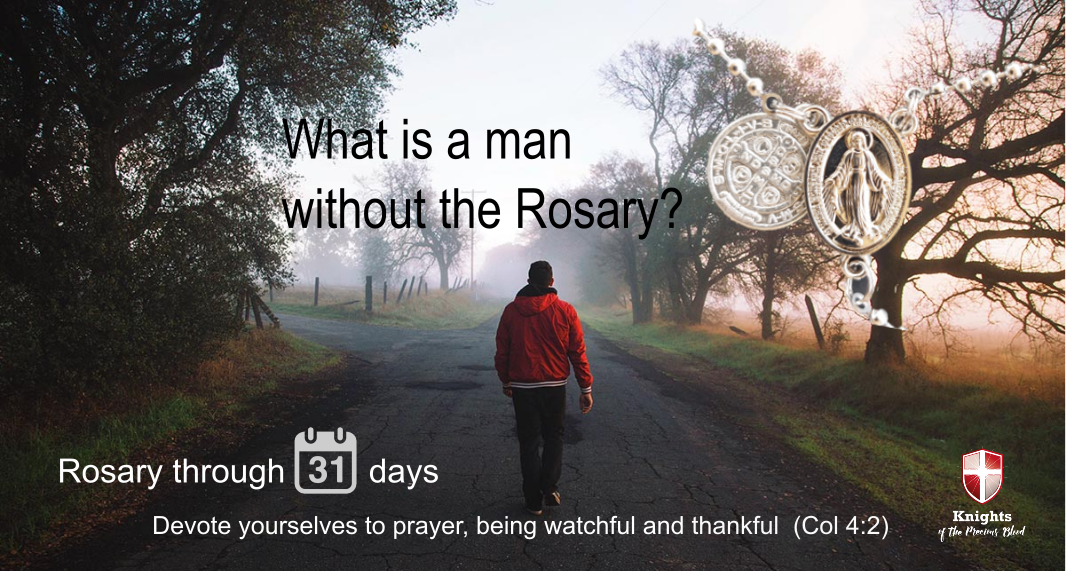


 Pondering on our current situation, one can’t help but draw parallels to the trials our Croatian forefathers experienced under the oppressive rule of communism. Our Blessed Cardinal Stepinac was placed under house arrest, effectively stripping him from the ability to act freely in performing his religious function as a Cardinal. He was offered freedom in exchange for complying to the mandates of men. All he had to do was to break the Croatian Catholic Church away from its union with Rome and he would be a free man. The communists even promised to allow him to be the face and head of this new break-away church. This was the man-made mandate the communists insisted on in order for Blessed Stepinac to have freedom. But Blessed Stepinac refused their mandates and instead chose to be free within his cell, first serving a term in prison, and then under house arrest. Yet the Cardinal cemented himself as a voice of hope and a witness to the Gospel of Jesus Christ for the people of Croatia, as well as remaining a faithful son of the Catholic Church.
Pondering on our current situation, one can’t help but draw parallels to the trials our Croatian forefathers experienced under the oppressive rule of communism. Our Blessed Cardinal Stepinac was placed under house arrest, effectively stripping him from the ability to act freely in performing his religious function as a Cardinal. He was offered freedom in exchange for complying to the mandates of men. All he had to do was to break the Croatian Catholic Church away from its union with Rome and he would be a free man. The communists even promised to allow him to be the face and head of this new break-away church. This was the man-made mandate the communists insisted on in order for Blessed Stepinac to have freedom. But Blessed Stepinac refused their mandates and instead chose to be free within his cell, first serving a term in prison, and then under house arrest. Yet the Cardinal cemented himself as a voice of hope and a witness to the Gospel of Jesus Christ for the people of Croatia, as well as remaining a faithful son of the Catholic Church. Governments have mandated that proof of vaccination be shown through the use of a passport or certificate. This will be needed to move around and function freely in society – to work, to shop and to attend public gatherings and venues. Entry will be denied without these credentials. Compare this situation to what Our Lord says in the parable of the wedding banquet. In this parable the king invited everyone but there was a person who entered without the appropriate clothing. “Friend, how did you get in here without a wedding robe?” said the king (Matthew 22:12). The ‘wedding robe’ we need to enter the heavenly banquet is the robe washed clean by the Blood of the Lamb. We are healthy in both body and soul when living in a state of grace. Our passports are printed on our souls, not on a digital wallet.
Governments have mandated that proof of vaccination be shown through the use of a passport or certificate. This will be needed to move around and function freely in society – to work, to shop and to attend public gatherings and venues. Entry will be denied without these credentials. Compare this situation to what Our Lord says in the parable of the wedding banquet. In this parable the king invited everyone but there was a person who entered without the appropriate clothing. “Friend, how did you get in here without a wedding robe?” said the king (Matthew 22:12). The ‘wedding robe’ we need to enter the heavenly banquet is the robe washed clean by the Blood of the Lamb. We are healthy in both body and soul when living in a state of grace. Our passports are printed on our souls, not on a digital wallet.  This health passport system being introduced today segregates society once again under a system of medical apartheid, essentially creating an inferior class of citizens. This is not part of the great mandate of God, but rather of man and ultimately Satan, who wants division and disharmony in society. Jesus died for
This health passport system being introduced today segregates society once again under a system of medical apartheid, essentially creating an inferior class of citizens. This is not part of the great mandate of God, but rather of man and ultimately Satan, who wants division and disharmony in society. Jesus died for  So how does one become free, even within the four walls of a cell or within the walls of lock-down? Cast your mind back to the scene in “King of Kings” where Jesus wants to free John the Baptist within his cell. The answer, and the only answer, is Jesus. “So, if the Son makes you free, you will be free indeed” (John 8:36). No matter where we find ourselves, be it in a lock-down, in a prison cell like John the Baptist or Cardinal Stepinac, at home, at work, or in society, only the Son of Man can set us free. Through Him, we are free to have a contagious faith that spreads the Alpha and the Omega; a faith to spread the gospel message of salvation and hope. We have that light in us (Matthew 5:16) and we need to let Christ shine in us and through us to light up the darkness of this world. This freedom will entail suffering; we may be called to suffer as a white martyr like Blessed Stepinac, or as a red martyr, spilling our blood, like St John the Baptist. Following the examples of holy men and women, have faith in God who is good and ask Him for a contagious faith. As stated in the prologue of the Catholic Church Catechism:
So how does one become free, even within the four walls of a cell or within the walls of lock-down? Cast your mind back to the scene in “King of Kings” where Jesus wants to free John the Baptist within his cell. The answer, and the only answer, is Jesus. “So, if the Son makes you free, you will be free indeed” (John 8:36). No matter where we find ourselves, be it in a lock-down, in a prison cell like John the Baptist or Cardinal Stepinac, at home, at work, or in society, only the Son of Man can set us free. Through Him, we are free to have a contagious faith that spreads the Alpha and the Omega; a faith to spread the gospel message of salvation and hope. We have that light in us (Matthew 5:16) and we need to let Christ shine in us and through us to light up the darkness of this world. This freedom will entail suffering; we may be called to suffer as a white martyr like Blessed Stepinac, or as a red martyr, spilling our blood, like St John the Baptist. Following the examples of holy men and women, have faith in God who is good and ask Him for a contagious faith. As stated in the prologue of the Catholic Church Catechism: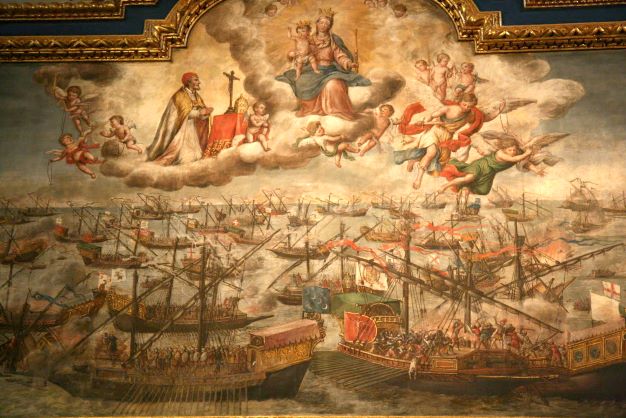
 The 24 year old, Don Juan of Austria, was chosen by Pope St. Pius V to lead the fleet. Not only had he proven himself in battle defending attacks from the Moors in southern Spain, he was chosen by the Dominican Pope due to his devout Catholic belief and chivalric love for Our Lady, Queen of Heaven. It is said of him that he was the last true knight of Europe. Quoting direct from Fr Don Calloway’s book, Champions of the Rosary we read of Don Juan:
The 24 year old, Don Juan of Austria, was chosen by Pope St. Pius V to lead the fleet. Not only had he proven himself in battle defending attacks from the Moors in southern Spain, he was chosen by the Dominican Pope due to his devout Catholic belief and chivalric love for Our Lady, Queen of Heaven. It is said of him that he was the last true knight of Europe. Quoting direct from Fr Don Calloway’s book, Champions of the Rosary we read of Don Juan:
 The Battle of Lepanto victory was attributed by St Pope Pius V to our Lady of the Rosary. All knew this to be true. The Venetian senate had inscribed on a chapel dedicated to Our Lady of the Rosary the inscription: “Neither valour, nor arms, nor armies, but Our Lady of the Rosary gave us victory!”. St Pope Pius was so convinced of Our Lady’s intercession that the Feast of Our Lady of Victory was instituted on October 7. One year later, the Dominicans requested the feast to be specifically titled “Our Lady of the Rosary”. Pope Gregory XIII granted their request in 1573 and the first Sunday in October is celebrated as the Feast of Our Lady of the Rosary which was extended to the entire Church by Pope Clement XI in 1716.
The Battle of Lepanto victory was attributed by St Pope Pius V to our Lady of the Rosary. All knew this to be true. The Venetian senate had inscribed on a chapel dedicated to Our Lady of the Rosary the inscription: “Neither valour, nor arms, nor armies, but Our Lady of the Rosary gave us victory!”. St Pope Pius was so convinced of Our Lady’s intercession that the Feast of Our Lady of Victory was instituted on October 7. One year later, the Dominicans requested the feast to be specifically titled “Our Lady of the Rosary”. Pope Gregory XIII granted their request in 1573 and the first Sunday in October is celebrated as the Feast of Our Lady of the Rosary which was extended to the entire Church by Pope Clement XI in 1716.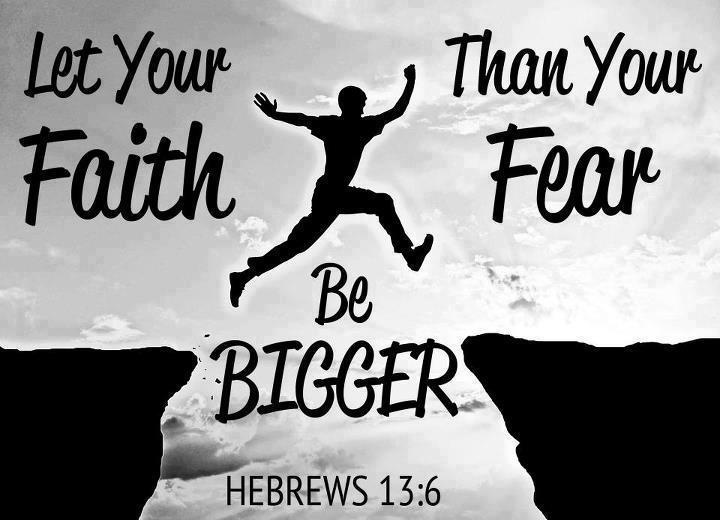



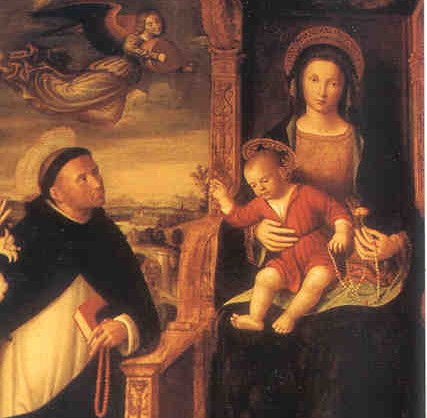
 After the initial success by St Dominic and his preaching of the Rosary the Confraternity of Prayer was established. Europe found itself in tragic times in the 14th & 15th centuries. The Babylonian captivity of the popes (1309-1377), saw the removal of the Papal seat from Rome to Avignon on the borderland of France. For nearly 70 years, the popes, all Frenchmen, were under the influence of French kings. The Bubonic (Black) Plague struck in 1348 and saw countless people die. It is estimated that Europe lost a third to half of its population, to this plague. Then came the great schism of the west (1378-1417) during which time we had two popes claiming the papacy and even at one stage three.
After the initial success by St Dominic and his preaching of the Rosary the Confraternity of Prayer was established. Europe found itself in tragic times in the 14th & 15th centuries. The Babylonian captivity of the popes (1309-1377), saw the removal of the Papal seat from Rome to Avignon on the borderland of France. For nearly 70 years, the popes, all Frenchmen, were under the influence of French kings. The Bubonic (Black) Plague struck in 1348 and saw countless people die. It is estimated that Europe lost a third to half of its population, to this plague. Then came the great schism of the west (1378-1417) during which time we had two popes claiming the papacy and even at one stage three. Blessed Alan was a champion of the Rosary in a time the world most needed a guiding light and a return to prayer and conversion. This call is for you, Croatian men! Take up your weapon. Be a champion of Our Lady and Her Rosary. The world, in 2021, needs men to unsheathe this weapon, to faithfully recite the Rosary, destroy sin and heresy, and convert sinners. Men it is time to set your heart and world on fire!
Blessed Alan was a champion of the Rosary in a time the world most needed a guiding light and a return to prayer and conversion. This call is for you, Croatian men! Take up your weapon. Be a champion of Our Lady and Her Rosary. The world, in 2021, needs men to unsheathe this weapon, to faithfully recite the Rosary, destroy sin and heresy, and convert sinners. Men it is time to set your heart and world on fire!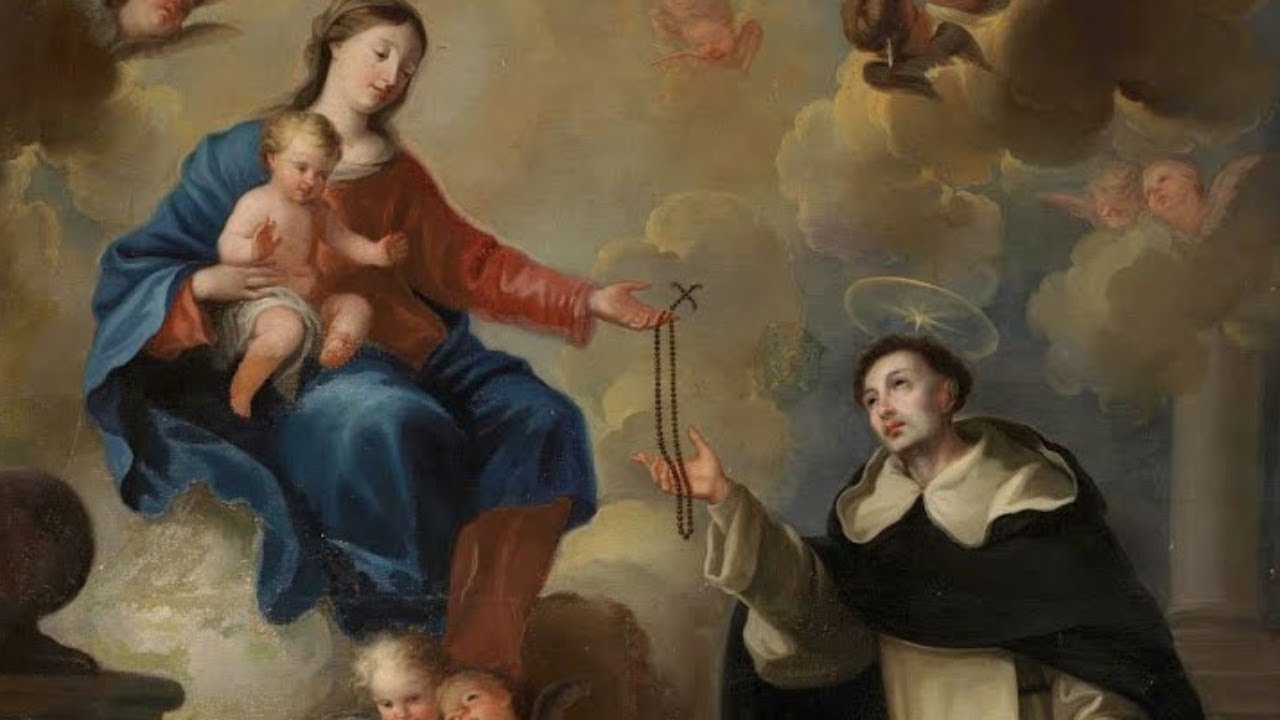

 With this spiritual weapon, St Dominic rose and went quickly to the Cathedral and preached with zeal and passion, teaching and preaching the Rosary and with its power converting sinners and heretics. As Fr Don Calloway relates, this “was the moment the sword was unsheathed”.
With this spiritual weapon, St Dominic rose and went quickly to the Cathedral and preached with zeal and passion, teaching and preaching the Rosary and with its power converting sinners and heretics. As Fr Don Calloway relates, this “was the moment the sword was unsheathed”.
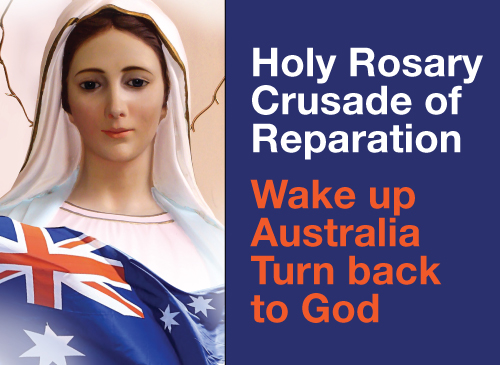
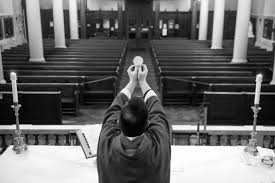

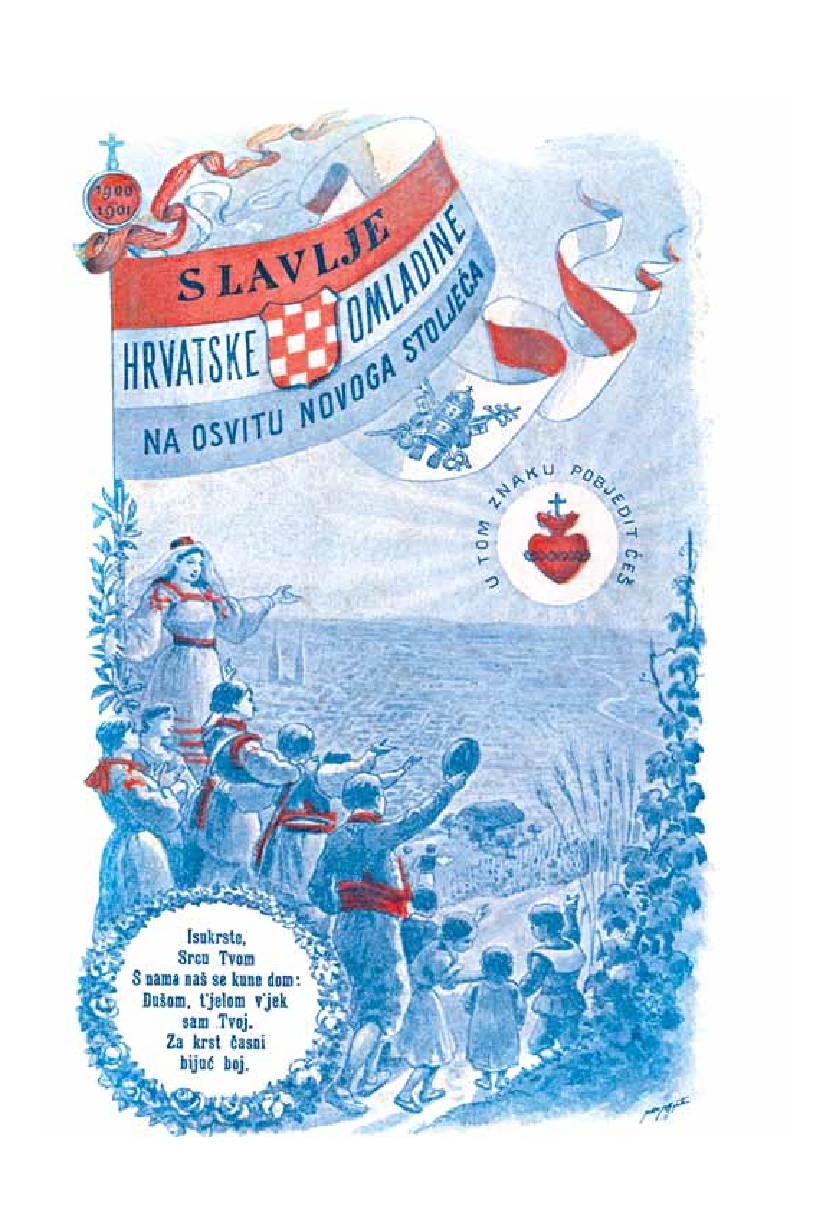




You must be logged in to post a comment.